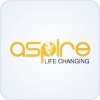Home Creme de Vape Blog Battery Safety
Battery Safety
We're regularly asked about battery safety and proper care, and we're really pleased to help out and advise where we can.
The other day, we received an email from a worried customer, concerned about all the safety information we give on this site. They indicated that they knew a bit about battery safety and had stayed away from mechanical mods because of these concerns. They also said they had only bought VTC5 batteries up to now, and were questioning why we only sell AW batteries.
Most thought-provoking though, was that they asked why we indicate that the IMR batteries are safer chemistry, whilst at the same time providing so much cautionary safety information and "making it sound like they are highly explosive when charging". They further went onto to say that it was a bit of a mixed message, and rather off-putting, when we are the very place he'd expect to be reassured about the safety of the products.
It's interesting to note that this customer (in common with many) was unaware he'd previously been using a battery not designed for or recommended to be used in single cell, non-protected applications (such as in an e-cig mod), and that they themselves are no less dangerous (in certain conditions) as the genuine AW IMR batteries we do sell (and in fact may be slightly more explosive in certain conditions).
Here's an abbreviated version of our response:
"It’s important to understand that ALL lithium ion batteries must be handled with care, and it’s incumbent on us to provide full and complete safety warnings. Batteries are produced in several different chemistries, all of which have different properties. With ICR being the least safe (so much so, ICR batteries should never be used without a seperate or built-in protection circuit), and IMR being the most safe. VTC5 are somewhere in between these two on the safety scale because they have properties of both the highly explosive ICR chemistry, and the much less volatile IMR chemistry. VTC5 batteries were never designed to be used in these applications, and the original manufacturer doesn’t authorise their use in anything other than protected multi-battery packs for use in laptops.
All e-cig users need to understand that these batteries store a large amount of energy, and if the battery suffers a thermal runaway condition, it will vent, and the particular chemistry affects how quickly and under which conditions it may be triggered into venting, and how it behaves during venting.
ICR chemistry must only be used in a protected format, since when it vents, it does so explosively with flame. IMR chemistry does not vent explosively with flame, but will vent hot gasses, and if the device its contained in does not have adequate safety features and venting, it could explode.
Please rest assured, we stock the safest, most well-recognised batteries on the market. The AW batteries have been tried and tested, and beaten all other batteries in our tests, and those tests performed by battery experts – in terms of their performance, longevity, and safety features."
This exchange caused us to wonder whether the question here really ought to have been why other vendors aren’t providing their customers with this critically important information so they are fully informed about battery care and safety? We found it very interesting, and indeed quite shocking that the information we provide about battery care and safety has come as a surprise and indeed caused such alarm to a long-time vaper who had not come across much of this information before.
We don't wish to alarm anyone with our battery care and safety information, but rather, make sure every vaper knows they must pay attention to battery care, and respect and look after their equipment.
Battery venting is very rare, and can be entirely avoided by purchasing genuine, good quality batteries that are specifically recommended for vaping, using only recommended accessories, and observing basic and sensible safety precautions.
If you're shopping elsewhere and don't see battery safety information, it doesn't mean the products are safer than those we provide - it just means the vendor has failed to give you the information you need to use the products as safely as possible. We'd advise you contact that site to ask why they aren't presenting this necessary and important information at time of sale.





















